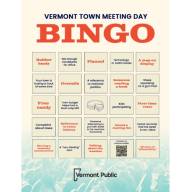In a speech this summer, President Trump said of his political opponents: "I hate them. I cannot stand them, because I really believe that they hate our country." This seemed like an odd sentiment coming from a guy who just a few months earlier, in his inaugural address, said that he wanted to be "a peacemaker and unifier."
I suppose I can be counted as a member of Trump's country-haters, given my opposition to most of his policies. But Mr. President – in response to your accusation that people like me hate the country, I am copying you on a letter that I am sending to America.
Dear America:
At the great risk of sounding cloyingly mawkish, I love you. Years ago, I sat at a table with two African students who told me: "America is the greatest country in the world." They said it with unfiltered conviction, even at a time when the war in Vietnam, student unrest, multiple assassinations, and other troubles might have cast doubt. It drove home to me the realization that, then and now, in good times and not so good, you are a pretty darned good place in which to live.
As the Africans implied, you shine a light to the world as a symbol of freedom, fairness, and opportunity, even if that light dims at times. You aren't perfect – no country can be. But stitched in with your imperfections are patches of the best of humanity – in politics, in the arts, in technological innovation, and in an ongoing quest to improve yourself when mistakes are made.
You have acted stupidly in the past, as we all have. Slavery, the Civil War, the mistreatment of Native Americans, racism, etc. – what's up with all that? I have been critical of you at times, but such candor is essential to any enduring relationship. You deserve rebuke for example, for allowing an unprincipled grifter, abusing the limits of your carefully structured legal system, to become your elected leader. But I respect your effort, if sometimes misguided, to be led back toward sanity by a constitution that is one of the three great legal documents of Western civilization. The Ten Commandments and the Magna Carta are the other two.
I think I know you pretty well. I have been to all 50 of your states. I have seen your physical beauty; I have been to 37 of your 63 national parks. I have also seen your scars and blemishes, such as logging clear-cuts in Washington or the weed-filled parking lots of malls abandoned in the age of digital commerce. I have voted in your elections dozens of times. I have lived in your disparate communities – urban, suburban, rural – so I know a little about the variations in daily life that you embrace. And I have also lived abroad – in Germany in the 1960s – giving me some sense of comparison. In the big picture, you look pretty darned good.
Your people have their differences, as should be expected and even celebrated in a country that has defined itself by promoting the shared experience of all ethnicities, religions, and political viewpoints. (Inscribed on the Statue of Liberty: "From her beacon-hand glows world-wide welcome.") For a time, it was thought that these differences would blend together, culturally, and linguistically, into a homogeneous entity, as if in a melting pot. The melting pot never really came about, and maybe that's a good thing. The mottle of your population has engendered a cultural mosaic unlike anything else in the world – enchiladas alongside pad thai and wiener schnitzel; jazz or rap or opera or gospel; so many faiths; Republican, Democrat, conservative, progressive, socialist, capitalist, fundamentalist. A world-wide welcome.
Differences might lead to argumentation, disagreement, segregation, and occasional confrontation. But for the last 160 years, you have managed to abstain from serious armed conflict. And somehow, once your people have stomped their feet and expressed their anger and resentment toward one another, you find a way back to relative civility and stability. Your people don't always get along, but still, for the most part, there is peace.
It isn't easy being you. You have chosen to avoid the simplistic governmental strictures that a theocracy or a monarchy or a caste system might impose. By allowing me and other Americans to decide how and by whom we want to be governed, you have inevitably invited a mess. (As the famous saying goes, democracy is the worst form of government except for all the others.) Factions collide in seeking to stake out their territorial imperatives, politically, culturally, and economically. But what a mess – distressing at times but also inspiring.
When you hear some people say that I hate you, don't believe it. And when I say that I believe in you, America, know that millions of fellow citizens and accused haters like me agree.
With love from your faithful citizen, Peter.
I am not sure why the current Republican party and conservative commentariat seem so fond of the concept of hate. Sure – Democrats can be hateful and insulting, too, but Republican bloviators outdistance them by a country mile in echoing the hater-in-chief. (I recently heard the President use the word "hate" three times in the same, short sentence.) I sense now that most Americans – most independents and Democrats, and even many Republicans – are tiring of this divisiveness. If America is to be great again, as the Great Leader insists, scrubbing American-against-American hatred from the political landscape might be a good place to start.
Oliver lives in Warren.
You might also like












